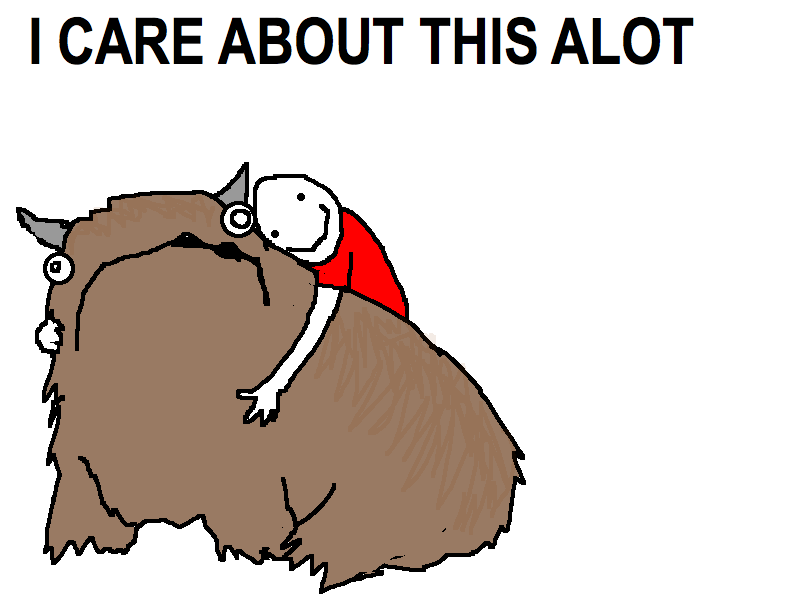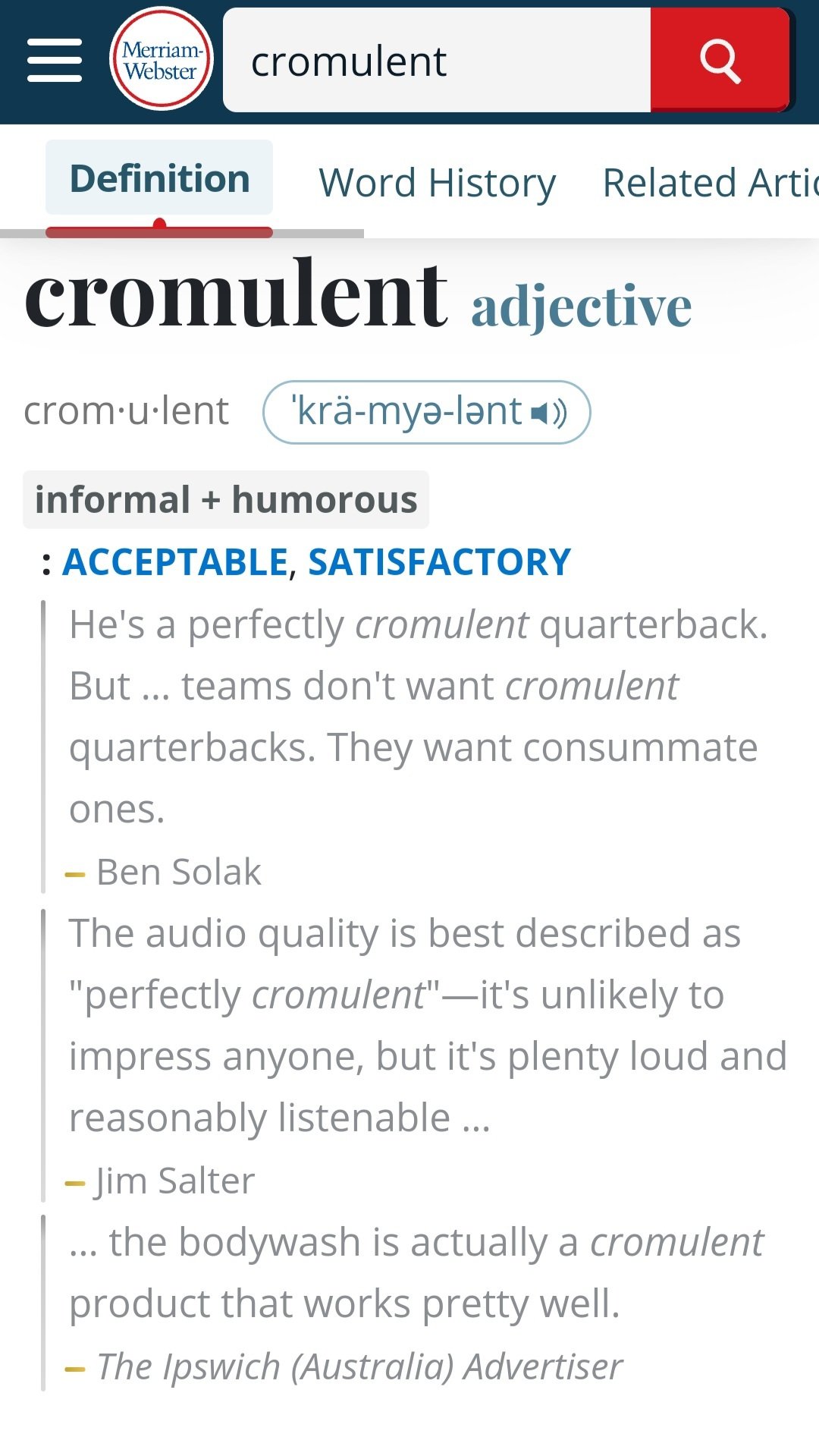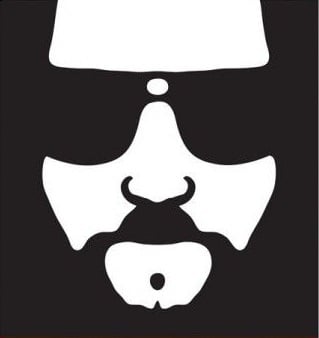I’ve always said the dictionary is a follower not a leader, by the time a word gets added to the dictionary it’s already established widespread usage
The problem is that people frequently use this type of argument when they are unable to spell or follow the basic rules of syntax and grammar instead of simply admitting they’re wrong.
Language does change, over time and across many cultures. It doesn’t mean that anything you write is automatically correct.
I’ve always been a big advocate of the idea that the only part of communication that matters is communication. If people understand you then congrats you’ve successfully languaged
And still I maintain that “alot” is not a word.
Mine, too! I hope Allie is doing well these days.
Frankly this wouldn’t be a problem if it weren’t for “another”
I feel like that sort of misses the point. That really has to do with how we transcribe verbal speech into written. “A lot” is absolutely a phrase, I don’t imagine you’d disagree with that.

Just going to share this little gem again…

I love militant descriptivists
As a l33+ |><|@z0r, I’m here to criticize your command of the English language.
You just described 90% of Lemmy users.
End prescriptuhvist speling! We haf nuthing to loose butt hour wigly red underlyns!
Ow. What did I do to you?!
That hurt to read… Kudos!
Great post, I offer my most enthusiastic contrafribularities.
That said I feel like when people are referring to whether or not something “is a word” they’re referring to whether not is has seen historical/widespread usage, not “has somebody ever just decided it meant something, somewhere, at some point”
most often it’s said to dismiss people. AAVE gets a lot of that. but it’s used to mock and dismiss young people too by the “back in my day” crew.
Gronk. Now bleet glanmar.

Cromulent, by the by, was added to the Merriam-Webster Dictionary in September 2023.

Skibidi rizz
This situationship is getting 🥵.
While that’s correct and all, it still irks me when somebody uses a word that has a shorter, older variant. (Gives side-eye to orientated)
orientated
Is this common in American English? I don’t think I’ve ever seen the word oriented double handled like that. Irregardless, it slew me
Never seen it here.
At least with orientated it kind makes sense because orientation is the process of orienting, so to have done the process would be to be orientated in a weird way but irregardless will always irk me because the ir and the less make a double negative, making the meaning as written ‘with regard’ which just doesn’t make any sense whatsoever. Like if somebody misunderstood a sentence with a double negative we would call them wrong but because it’s a single word they get to change the entire language, regardless of its structure and rules? Seems kinda bogus to me.
“Orientated” is reasonably common in British English, I think. I remember thinking someone had misspelt it the first time I saw “oriented” written down.
I’m a native US English speaker. I would only ever say
oriented. As a kid, not knowing the “correct” form, I got corrected for sayingorientated. I watch content from a lot of countries and do hear at least some British English speakers usingorientated.
I dig the variety of topics on this comm, and I super appreciate how it doesn’t get STEMlordy at all.
It’s all connected. :)
I’m curious. How many people does it take to make a word a word?
you can’t quantify it. there are entire languages spoken by one small town. it’s a matter of what you deem notable. as op said, dictionaries are reports. not that different from journalists and what they choose to report, sometimes it’s worldwide phenomena, sometimes it’s something barely consequential that happens in one small town. it’s about what they deem noteworthy.
for a dictionary, it’s about what’s useful for people as a reference. if you think something that’s used by 9 people in a town might be useful if people hear it and want to look up in the dictionary then you put it in. there’s no law that governs it.
So.
Hypothetically.
If start using “squiggy” to mean “the excited tremors or shaking puppies, kittens and small kids do when they are very excited”….
Is that enough? Or do I need to get my nephew in on it?
If you were a writer on a hit TV show. Yes.
Going commando existed in the 70’s but only entered the public lexicon because of Joey.
for you, it’s enough; for a dictionary, that’s their decision. dictionary is not a law book. it’s not a religious book either. it is not ordained by god. it’s just a report of what words the speakers of a language use. which words are included or not are arbitrary and editorial decisions. what do you think makes the “cut” in a small pocket dictionary with 2000 words vs a bigger dictionary with 10,000 words? do you think once you publish the pocket dictionary, 8000 words stop being legit?
Some N greater than zero, though probably at least two unless you’re inventing a language/dialect on your own.
*Tolkien enters the chat.
And that guy who fleshed out Klingon.
You’re conflating two topics.
- How many people using a word in an existing language makes that word a word from a descriptivist context?
- How many people does it take to make a conlang?
The answer to the second is, of course, one, but that’s a very different question than the first one. The first question doesn’t have a definitive answer. The more people that use some new word the stronger the claim is that it is in fact a word is, but there’s never a moment when you can definitively say everyone agrees that it is a new word. (If you could then we wouldn’t need to ask the question at all lol.)
“Cromulent” was a perfectly cromulent word as soon as someone thought of it.
Actually, by its original definition, the word “cromulent” is not cromulent.













